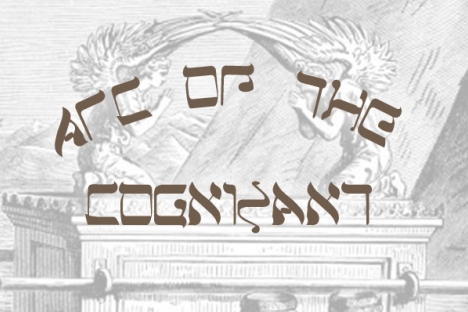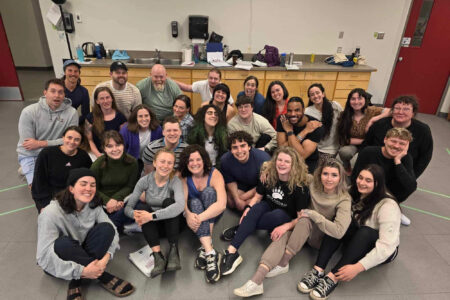Column: Elders -- Part One
We impede evolution and the development of the human species if we neglect the aged.” — James Hillman, Force of Character
“Ve gett too soon oldt undt too late schmartt! — sign seen in a joke shop
The value of Elders: obsolete, replaced, or persisting?
I had begun a column on Elders in March this year, but the pandemic came along and I had to turn my attention to that enormous new fact of our world.
The effect of the Covid 19 pandemic upon seniors in their care homes has been notably lethal, and the reaction to that has been an education about social attitudes toward elders. Now the time seems more apt than ever to explore questions about aging and elders in Canada, in the West’s affluent democracies, and around the globe. Specifically, I am interested, being myself an elder, in knowing whether being an aged person is valued in our culture and politics — and generally, among other, younger age cohorts.
Without a doubt, Elders in tribal societies living in primitive times before the modern era – let us say before about the year 1700 – were valued. They were the repository of societal and cultural memory, and before mass recording of data by means of the printing press, and before widespread literacy, elders were the people who knew what others had not experienced. Age had value. People listened when elders spoke.
(A lucid brief discussion about the former value of elders can be found in the popular book by Yuval Noah Harari, Sapiens: a brief history of humankind.)
Is it still true that Elders are valued for their knowledge and memory? Has the power of our technologies replaced the memory of the elderly, and made the wisdom passed on by the aged less valuable? And has change, at a very rapid pace indeed since the late 20th century, rendered old knowledge obsolete?
Wisdom and Facts: there is a difference
We’ll share the way, the way to lead you back home, to the peace where you belong … — Neil Young, the Way
The conventional thinking about age is that “wisdom” accompanies it. The person who is closer to the end of their life than most of those among whom the elder lives, has knowledge to pass on.
We have amazing teaching media, thousands and thousands of libraries filled with millions of books, hundreds of millions of computer screens, radios, televisions. A literate, mildly-skilled person can learn a lot. They can learn this without an Elder.
The teaching, the inculcation, of facts, of data that is straightforwardly verbal or visual, is not complicated.
Any parent can teach their children basic skills. We have extensive institutions of education. Professionals specialize in pedagogy. The kind of knowledge requiring mastery of facts and methods is the kind teachable by all sorts of people; this teaching is not the traditional value of Elders. No Elder can teach equally well about all subjects of life and the world, self-evidently. I will return to this point when I address the specific question of history-teaching and seniors.
The way that can be spoken of [taught] is not the Tao. The name that can be named is not its Name….
The wise soul aligned with Way, performs tasks and withdraws without attachment.
Doing nothing [wu wei], every task is accomplished. — Tao Teh Ching
I think it is clear: a lot of the supposed knowledge we want from Elders, is not the sort that can be taught. Or, as the Tao would say, if it can be spoken about, it is not the true teaching — about what has meaning, about what matters, about mysteries of our human condition. It is not facts that need to be taught. It is true knowledge of living among other people, living with difficult feelings, being challenged to respond to events.
Growing wise closer to life’s end: guaranteed?
One can easily think of lessons learned in one’s life that seem not to be things one person can teach easily to another. To attempt to teach the really difficult things, I would want a personal relationship with the person I am trying to teach.
Experience teaches one’s intellectual mind and one’s feeling heart — in a way no mere words, heard or spoken, can. Elders have experience, yes, but personally I begin to find myself confronted often with this situation: I have a sense that what I know about living, the things about people and about myself that I have learned only by living, and that are of very great value to me, will not be learned by another just by my telling them my understandings of my life experience.
For example, I have learned when to withhold my opinion from expression at times and in places with specific persons (better than I once did!) That is judgment, discrimination, or percipience, learned from experience. But I would not presume to try and teach this kind of learned wisdom to just anyone; I would first need to feel I have some grasp of the student’s character.
I might believe that I have learned a lesson for my understanding, that I can teach to my child. But, it often seems rather that the lesson was for me alone and is not one that another person can learn by my simply telling them.
The student must have an experience similar to mine, to fully learn a lesson. I assume the similar experience will mean that that person will arrive at a similar conclusion. Perhaps.
But there is as much chance that the person will not interpret their experience the way I did. The lesson is not the same for them. I need a sensitivity, a learned wisdom in fact, to choose what lesson, when, and to whom, I can teach.
Also I have found it is all too likely that the difference between my character and the other person’s is significant. What I insist is an obvious conclusion, another doubts.
What I have tried to describe in the few preceding paragraphs, is a phenomenon I have indeed learned is true. From my experience: trying to tell a child or grandchild or friend how I learned a lesson, I find they do not take the lesson I believe is there to be learned. The listener is not enough like me to perceive a lesson I learned.
As my granddaughter said forcefully to her mother – my daughter — “Don’t think I am like you. I am not like you. I do not want to be like you. So stop trying to make me be more like you!” Well, I could only laugh when I heard this, for I can recall my daughter saying much the same thing, with the same force, to her mother.
You can lead a person to the lesson you think is there to imbibe. You cannot be certain they will drink the same conclusions from your experience that you have. If they have an experience much like one that happened to you, the lessons they take from it may well be quite different from the one you took: that is character at work.
Socrates: gnothi seauton
Character matters. It is the lens through which you see the world, or the light your mind casts upon the world around you. Knowing your character is very significant knowledge. No one else teaches you this. An Elder who has known you all your life might very well have a deep appreciation of your character. But you need your own.
In the West, our cultural leadership, teachers in institutions of education, our philosophers, our literary idols, have held up the Graeco-Roman tradition of wisdom. The West has a distinctive mental universe well described by Richard Tarnas in his brilliant one-volume work, The Passion of the Western Mind. A very different, more-critical overview of Western mind is heard from Charles Eisenstein in The Ascent of Humanity; Eisenstein perceives a profound problem in Western mental patterning.
No one at the ancient foundations of our culture is more revered than Socrates and his interpreter-reporter Plato. The concise tenet Socrates is supposed to have taught his disciples is a two-word aphorism, gnothi seauton — “know thyself.” These words were inscribed over the cave entrance to the Oracle at Delphi. In a more expanded version of the phrase, Socrates asserted that “the un-examined life is not worth living.” Life is for learning rational knowledge, and knowledge of self is the pinnacle of the good and the true.
People nearing the end of their lives are supposed to have some inclination to do a life-review and to see some meaning or pattern in the life they look back upon. To know who you are and to be comfortable and secure in those qualities of your self-hood, is supposed to bring one to some degree of peace of mind.
“On the other hand” — the hand of a cultural tradition remarkably unlike the West’s way of thinking, that derived its roots from India and China, with Taoist, Buddhist, Hindu and Zen teachings passed through millennia — Self is not always celebrated. In fact, the very notion that a human is a discrete self is denied in those traditions. The ego is an illusion, unreal, and of no value. Wise, enlightened minds of the East defy the sensation of being individual that our Western consciousness exalts. Thus, where you live, and among whom you live, determines a lot about whether you think “being true to you” and “knowing your soul” matters much.
Eisenstein is a modern Western thinker whose comprehension of Western notions of self, and of separation of self from all else (“dualism of subject and object”) aligns his philosophy more closely with Eastern norms than with the norm of physical-scientific models of self in the West. Eisenstein has often said that his time living in Taiwan as a young man left lasting impressions on him, and that he learned about the Tao in those years. Confucianism, on the other hand, has not influenced him to demand that elders must be honoured just because they’re old; Confucius’ love of hierarchy placed age over youth, male over female, noble over commoner, educated over uneducated. I am too egalitarian to accept this.
James Hillman: Character and Age
I know of no writer in English whose work on character and psychology as we in the West practice them, has impressed me more than that of James Hillman. He was a Jungian academic, and one who is credited with founding “archetypal psychology” as a defined school, putting the research of Jung to work explaining us to ourselves. Hillman is a great advocate for the supreme value of character, and what he calls “soul,” in two fine books – The Soul’s Code, and The Force of Character.
Hillman is certain we must value Elders: “We impede evolution and the development of the human species if we neglect the aged.”
Character is a supremely-valuable phenomenon for Hillman, and he does not confuse that with ego or a false self: “Character died in the twentieth century… In its place a bevy of substitutes appeared – the will, the individual, the personality, the subject, the ego.”
Here is what he has said about the value of an Elder: “The intricate, subtle process that slowly makes soul in a human being – the hands-on knowledge of nature and of the street, of dreams, skills, manners, and tastes, and of what happened before now and long, long ago – requires the intelligence of elders who devote themselves to other ends than pragmatic functioning. Their days of hunting and gathering, childbearing and nursing are past, yet their days continue because they have equally important duties: culture.”
Speaking only for myself, this agenda for old age set out by Hillman has my full allegiance. This is a project I feel completely ready and prepared to commit to. I have been a journalist and a teacher, and naturally think I have something to offer.
But who wants me to do this? Am I kidding myself to think such a contribution to culture is wanted from me? Do even my grandchildren look to me for such value, let alone strangers?
One has to ask whether the elder trying to contribute to society with the knowledge gained over a lifetime, will find a willing audience. Here is a very old reflection about that situation, from a biblical book contemporary with Socrates:
“Then said I, Wisdom is better than strength: nevertheless the poor man’s wisdom is despised, and his words are not heard…
And further, by these [words] my son be admonished: of making many books there is no end; and much study is a weariness of the flesh.”
Book of Qoheleth {Ecclesiastes] IX, 16 & XII, 12
To contribute to society and to human cultural evolution is the challenge Robert Hillman lays before people who are aging. He writes books; not everyone reads him.
Moses Znaimer: promoting Zoomers
I hesitate to refer here to the ideas of a man who is a “tireless self-promoter,” but it serves a purpose to introduce him here. The label describes Moses Znaimer, a mogul on the Toronto TV, radio, and print media scene. Znaimer has already pushed my buttons just being the person he is.
Maybe his project of promoting aging hipsters/ youthful elders is better than I am willing to appreciate. He has thousands of followers and readers of his magazine.
(I will be perfectly transparent about my prejudice here: men deemed “successful”, hailed as savvy entrepreneurs, wealthy, high-status business people in a capitalist market economy – are my particular model for a wrong-headed kind of character, of a type of consciousness of which the human world at present needs less, not more.)
“I’m rather an artiste of media,” Znaimer once said. “I take a little offence when people call me a businessman. The businessmen think I’m an artist and the artists think I’m a businessman. You live in that crack and you bind those worlds together. …It’s pretty risky, but the rewards can be very lucrative.” Report on Business, 2009
An observer of Znaimer’s persona as a businessman had this unkind comment:“He’s so full of himself, he had trouble fitting his head through the office door.”
He has employed his “Z” brand (the letter often figuring in his media and investment companies) to introduce the term “zoomer”, which he says means “boomers with zip.” The focus of a Zoomer (his magazine’s name) remains what it has been for we boomers when we were young: the superficial self, the competitive ego, the consumer of experience and material possessions. You had it all when you were young – why surrender that to age?
I am viscerally unsympathetic to the zoomer ideology, but it does symbolize a potent theme in the attitudes of significant numbers. There are seniors in our modern, affluent society who do not want to age with any sense of lessening, and I cite Znaimer as a vocal symbol of that attitude.
Here are some criticisms of Znaimer from a business journal, which to me are seriously disturbing when one questions his qualifications to influence the culture of aging in Canada:
“For Znaimer, 67, the [Zoomer] venture seems to represent a Hefneresque quest for eternal mojo — the magical, sexy power he’s famous for: media visionary, wheeler-dealer… To potential advertisers, the Zoomer concept was explained by another picture of Znaimer, with captions pointing to various parts of his body: “Body of a 65-year-old”; “Mind of a 45-year-old”; “Libido of a 25-year-old”; “Heart of a teenager.” … With his Zoomer vision, Znaimer is tapping into our basic insecurities. Maybe he’s not been as right as often as he wants us to believe. Maybe that ad made him look like an aging sea otter washed up in the spume.”
— David Hayes, Report on Business, Sept. 2009
Wishing to deny that age has its unwelcome elements, of loss and deterioration of physical and mental faculties, is the key to Znaimer’s zoomer branding.
Znaimer wants us to labour tirelessly for, and believe in, the retention of youthful attributes such as easy strength and energy, mental agility and acuity, and sexual/erotic urgency, because age is not to be feared but celebrated. Znaimer, born in 1942, has a personal stake in promoting his vision of how to age. As a young entrepreneur, he was notable for his advocacy of youth and its values in his media endeavours, such as MuchMusicTV.
Hillman declares acceptance of the varied effects of aging, both the good and the less-so, is the mature attitude; Znaimer has no interest in character or soul. In my opinion, Hillman wants us to celebrate age in a realistic, healthy manner; Znaimer wants us to embrace mind-over-matter, telling ourselves we retain all our youthful merits as we get older. Scientific research says Znaimer is ill-informed, yet the Oprah-TV-generated subculture — “your-mind-creates-your-personal-reality” — enthusiastically embraces his ideology.
Positive attitude does have benefits, but denial of biological change is immature and not likely to contribute to contentment.
Purpose and Prospect: what do you expect from the process of aging?
I am not opposed to positive ambition for sustained health and good habits being cultivated by elders; I live in a city where the subculture of “seniors in fabulous health” is easy to observe. Yoga, dance, diet, and fashion for elders are not bad ideas. But I resist the sometimes-pushy advice from the hip-elder subculture. I am told to “stop ‘thinking old,’ you are as young as you decide to feel.” Yawn.
My mind is wonderful, so is my body, but they have limitations and no magical thinking will defy age. I am grateful for the real wonders without chasing false ones.
I accept that time brings age and age brings loss. For me, the contrast between the two agendas — for growing old with deepening character as offered by Hillman’s writings, or the experience-consuming, zoomer-booster imagery of Znaimer — is straightforward. I see the attraction in both; I’d say it is not either/or, but a matter of purpose.
Zoomers are not about giving back to society in the Znaimer youth-retention program; Elders with character are all about that. The prospect for the rest of my life, deepening my character and contributing to our culture and to younger generations, is one I gladly embrace.
Number and Elders
Since the sheer number of seniors is now unprecedented in affluent societies, and our fraction of the population is thereby of greater weight, elders matter to governments and economies.
There are almost 913,000 seniors in BC; by 2036, there will be more than 3.3 million Canadians over the age of 80 [according to Canada Yearbook]. In 2021, seniors will outnumber children under 15 for the first time. [ditto]
On Vancouver Island, one quarter of the population is over 64. [For contrast, in Nigeria today, one-half the population is under 25 years of age. Source: CBC news]
On November 8 this year, CBC reported that 97% of Canada’s fatal Covid cases have been seniors. Elders’ deaths from Covid have overwhelmingly occurred in care homes, particularly in Ontario, Quebec, and BC.
Aging and Understanding: what worthy qualities does Age confer?
“If youth only knew. If age only could.” — anonymous
One must accept, as an older person, that the pace of change in the world, due mostly to new technologies and other advances in research for chemistry and physics, is faster than at any time in history. Humans are challenged like never before to keep up with changes that affect very broad areas of our lives in Canada and around the world. Older people are disadvantaged in learning new skills and new knowledge, since it is well-supported by research that young human brains learn faster in formal and informal education, and, lacking previous habits, do not have to replace obsolescent knowledge with the most-up-to-date innovations.
This being the case, who thinks that elders have much of value to teach?
Again I declare, the kind of knowledge requisite to be au courant as the French say, or “cutting edge” or hip or up-to-the-minute, is not the sort we elders need to teach to anyone. We can comfortably – I hope it is comfortable – relax our pace for taking on new ways, fashions, tastes – and most importantly, skills – that younger people will still strive mightily to achieve. The economy gives them no option: adapt or be condemned to failure in the capitalist marketplace.
We seniors ought feel no embarrassment or shame when we are slower than other people to use the ATM, or cellphone, or whatever new app is the hottest item of the moment. We have come through that phase of life. We do not have to keep up. Unfortunately there are a lot of messages in our youth-revering culture that say or imply that we should be embarrassed for being old. This is the nasty kernel of meaning in ageism. Fight that attitude, reject it, ignore it. You’ll be happier.
Here ends Part One.
























